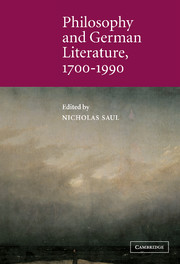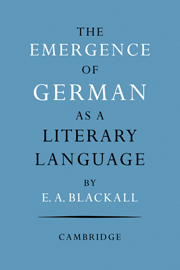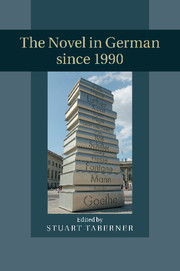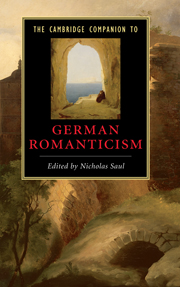Philosophy and German Literature, 1700–1990
Although the importance of the interplay of literature and philosophy in Germany has often been examined within individual works or groups of works by particular authors, little research has been undertaken into the broader dialogue of German literature and philosophy as a whole. This study offers six chapters by leading specialists on the dialogue between German literary writers and philosophers through their works.
- No other book treats the relation between philosophy and literature in such detail
- Covers a long historical period
- Features contributions from some of the most distinguished scholars of German studies
Reviews & endorsements
Review of the hardback: '… a coherent account of the importance of philosophy for German-speaking countries emerges from these six chronologically arranged chapters … for anyone embarking on a course of study of modern German thought or who is looking for a point of orientation, it can be recommended, not least because it has few competitors.' Modern Language Review
Product details
June 2002Hardback
9780521660525
338 pages
229 × 152 × 22 mm
0.67kg
Available
Table of Contents
- Acknowledgments
- Introduction: German literature and philosophy Nicholas Saul
- 1. Critique and experience: philosophy and literature in the German Enlightenment John A. McCarthy
- 2. The pursuit of the subject: Literature as critic and perfecter of philosophy 1790–1830 Nicholas Saul
- 3. Two realisms: German literature and philosophy 1830–90 John Walker
- 4. Modernism and the self 1890–1924 Ritchie Robertson
- 5. The subjects of community: aspiration, memory resistance 1918–45 Russell A. Berman
- 6. Coming to terms with the past in postwar literature and philosophy Robert C. Holub
- Bibliography.









